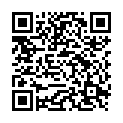|
|
|
| Module code: WIBASc-525-625-FÜ3 |
|
1V+1U (2 hours per week) |
|
3 |
| Semester: 5 |
| Mandatory course: no |
Language of instruction:
German |
Assessment:
Written exam
[updated 02.07.2019]
|
WIBASc-525-625-FÜ3 Industrial Engineering, Bachelor, ASPO 01.10.2013
, semester 5, optional course
WIB21-WPM-I-708 Industrial Engineering, Bachelor, ASPO 01.10.2021
, optional course
|
30 class hours (= 22.5 clock hours) over a 15-week period.
The total student study time is 90 hours (equivalent to 3 ECTS credits).
There are therefore 67.5 hours available for class preparation and follow-up work and exam preparation.
|
Recommended prerequisites (modules):
None.
|
Recommended as prerequisite for:
|
Module coordinator:
Studienleitung |
Lecturer:
Lehrbeauftragte
[updated 21.09.2021]
|
Learning outcomes:
After successfully completing this module, students will be familiar with the tasks, forms and strategies of procurement. They will be able to determine procurement quantities and dates and select optimal procurement channels. Students will be familiar with the sub-processes of the purchasing process and can carry out supplier evaluations.
[updated 02.07.2019]
|
Module content:
Procurement Management
1. Procurement tasks
2. Procurement strategies and forms
3. Needs assessment process
4. Supplier selection
5. Order and contract types in purchasing
6. Goods receipt
7. Supplier evaluation
8. Supply Chain Management (SCM)
[updated 02.07.2019]
|
Teaching methods/Media:
Regularly revised lecture notes will be published for this course.
[updated 02.07.2019]
|
Recommended or required reading:
_ Arnold. U. / Kasulke, G.: Praxishandbuch Einkauf; 2003
_ Hirschsteiner, G.: Einkaufs- und Beschaffungsmanagement; 2. Auflage, Kiehl, 2006
_ Koppelmann, U.: Beschaffungsmarketing; 4. Auflage, Springer, 2003
_ Large, R.: Strategisches Beschaffungsmanagement; 4. Auflage, Gabler Verlag, 2009
_ Melzer _ Ridinger, R.: Beschaffung und Supply Chain Management; 2004
_ Preissner, A.: Electronic Procurement in der Praxis, Hanser Fachbuch, 2002
_ Altmeyer, D./ Georg, S.: Die Bedeutung von Wissensmanagement für Unternehmen, Shaker Verlag, 2002
_ Herbst, D.: Erfolgsfaktor Wissensmanagement, Cornelsen Verlag Scriptor, 2004
_ Probst, G. et al.: Wissen managen, 6. Auflage, Gabler Verlag, 2010
_ www.Wissensmanagement.net
[updated 02.07.2019]
|

